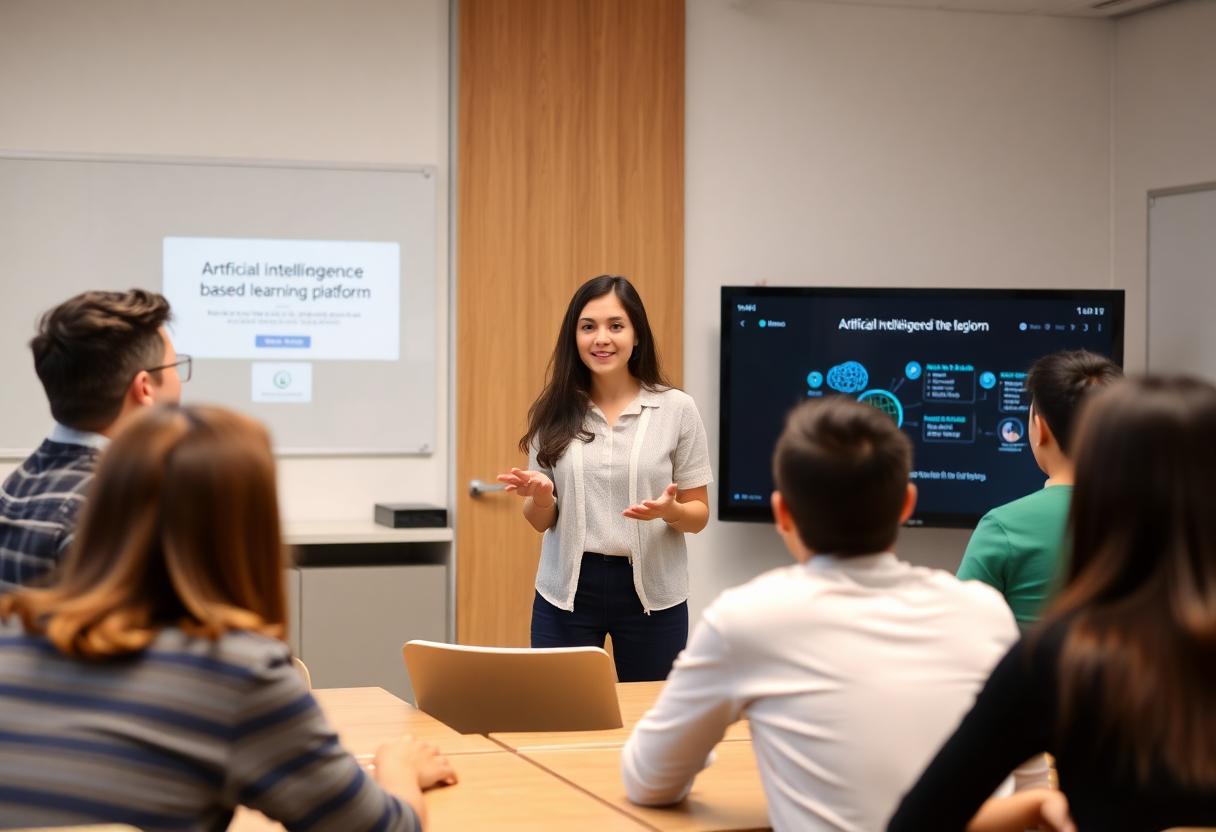Artificial Intelligence (AI) is revolutionising education, offering opportunities for personalised learning and more efficient management of administrative tasks. Schools worldwide are already experimenting with AI-based learning platforms such as AltSchool and MATHia, which enhance student motivation and performance. AI does not replace teachers but supports them, allowing them to focus on the more human aspects of teaching. However, the adoption of AI must address challenges such as data privacy and teacher training.
Enjoy:
- Over 60 AI tools to create quality content
- More time for creativity, stress-free
- Impactful content that attracts readers and visitors
All with just one click.
Overcoming misconceptions about AI’s potential to improve educational interaction is crucial in successfully integrating it into schools.
Unveiling the Power of Personalised Learning with AI
The power of personalised learning is being unveiled through the integration of artificial intelligence (AI) in education. AI-based learning platforms, such as AltSchool and MATHia, are already transforming schools worldwide by enhancing student motivation and performance. AI does not replace teachers; instead, it supports them by enabling them to focus on the more human aspects of teaching. Personalised learning with AI allows for tailored instruction and individualized feedback, catering to the unique needs and abilities of each student. By harnessing the capabilities of AI, educators can create a more engaging and effective learning environment that fosters meaningful connections between students and teachers. The potential of personalised learning with AI is vast, revolutionising education for the better.
Bridging the Gap: Teachers and AI in Harmony
As artificial intelligence (AI) continues to transform education, one of its key roles is bridging the gap between teachers and technology. AI platforms such as AltSchool and MATHia are already being used in schools worldwide to enhance student motivation and performance. Rather than replacing teachers, AI supports them by freeing up time to focus on more human aspects of teaching. By automating administrative tasks and providing personalized learning experiences, AI empowers educators to connect with students on a deeper level. However, achieving harmony between teachers and AI requires addressing challenges such as data privacy and teacher training. It is crucial to debunk myths and biases surrounding AI, recognizing its potential to improve educational interactions and foster meaningful connections between students and teachers. To successfully integrate AI in schools, careful assessment of technological readiness, appropriate tool selection, and continuous teacher training are essential.
Overcoming Challenges: Privacy, Training, and Technological Readiness
Overcoming Challenges: Privacy, Training, and Technological ReadinessIntegrating AI into educational settings comes with its fair share of challenges that need to be addressed. One of the primary concerns is privacy, as the use of AI involves collecting and analyzing vast amounts of student data. Schools must prioritize safeguarding this information and ensure strict adherence to data protection regulations. Another challenge lies in providing adequate training to teachers, enabling them to effectively utilize AI tools and platforms in their classrooms. This requires investing in professional development programs that equip educators with the necessary skills and knowledge. Additionally, schools must assess their technological readiness, ensuring they have the infrastructure and resources to support the implementation of AI-based educational systems. By addressing these challenges head-on, schools can harness the power of AI to revolutionize interactive educational resources and create a more personalized learning experience for students.
As AI continues to revolutionise interactive educational resources, it is crucial for schools to embrace this technology and overcome the challenges it presents. By harnessing the power of personalised learning and fostering collaboration between teachers and AI, we can create a more engaging and tailored learning environment. However, as we move forward, it is important to reflect on the ethical implications of relying on AI in education and how we can ensure its responsible and equitable implementation.
